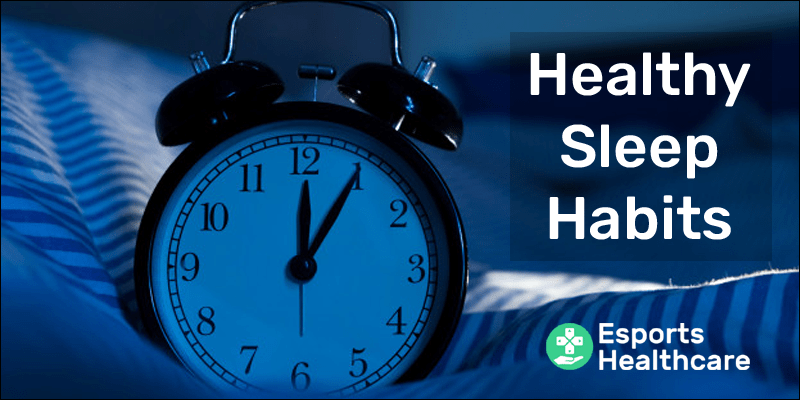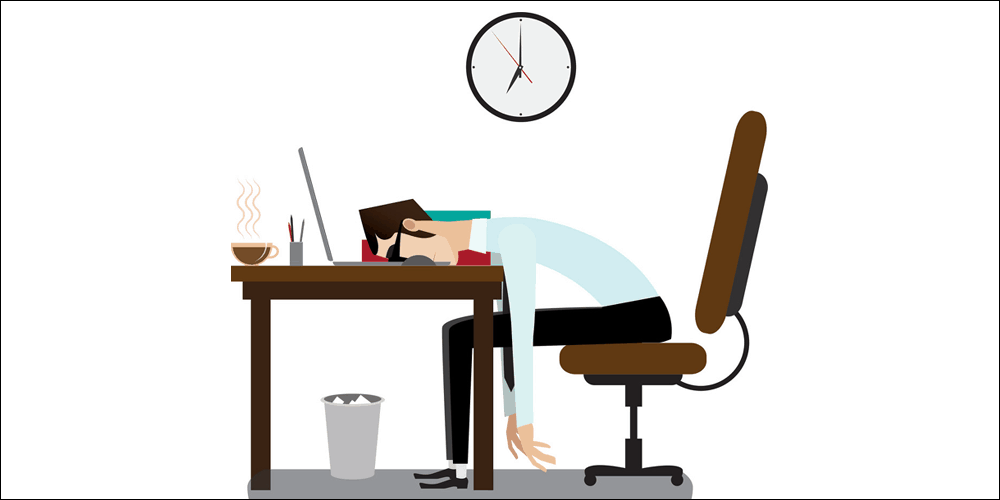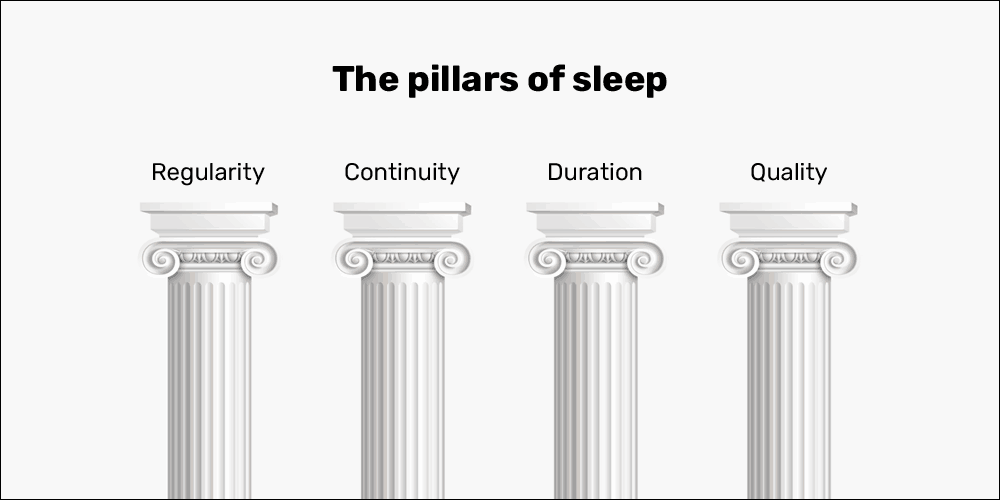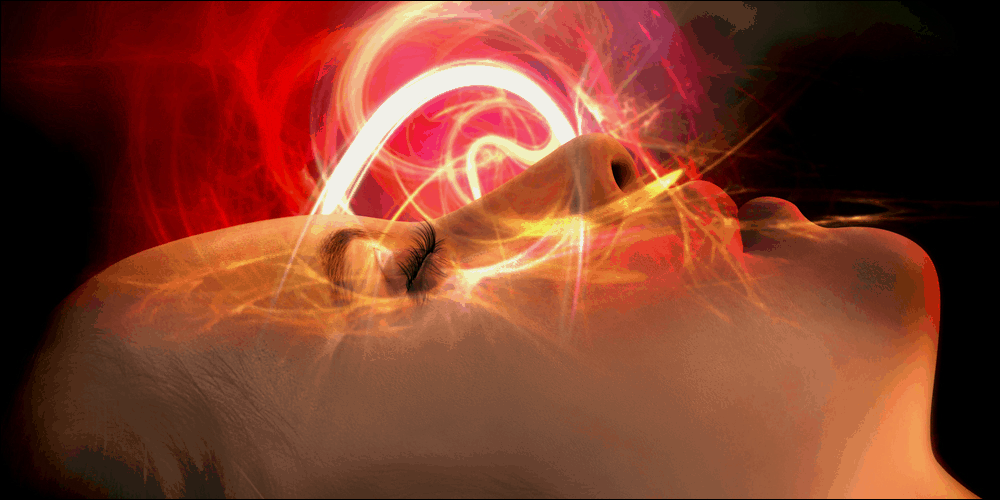Healthy sleep habits for gamers

Key points
Disclaimer
This information is for educational purposes only and is not intended to replace the advice of your doctor. Esports Healthcare disclaims any liability for the decisions you make based on this information.
The information contained on this website does not establish, nor does it imply, doctor-patient relationship. Esports Healthcare does not offer this information for diagnostic purposes. A diagnosis must not be assumed based on the information provided.
Sleep is among the absolute most important physiologic functions in most living creatures. There is no other bodily function or process that has such a profound effect on all aspects of health and wellness. However, much of the phenomenon of sleep is still largely misunderstood.
Credit: Matthew Walker, PhD
Most of this information described on this page was learned from lectures/discussions by Matthew Walker, PhD. Dr. Walker is a professor of neuroscience and psychology at the University of California, Berkley and the founder and director of the Center for Human Sleep Science.
To learn more about Dr. Walker and his research on sleep, check out his website and his book, Why We Sleep.
The importance of healthy sleep habits
Unlike other aspects of our daily routine (e.g., eating, drinking, or going to the bathroom), the reason for sleep does not seem inherently clear. For example, it appears that we sleep because we are tired. Unfortunately, this “answer” explains nothing of importance, and it instead leaves us with more questions.
Rather than “we sleep because we are tired,” a seemingly more appropriate position may be that we sleep to counter the ill-effects of wakefulness—to detoxify our bodies, to reset our physiology, and to organize the data in our minds.
Ultimately, there is a clear correlation between healthy sleep habits and overall wellness. Healthy sleep habits decrease the risk of all-cause mortality and diseases including—but not limited to—cardiovascular disease, cancers, and Alzheimer’s disease.
Likewise, there is a clear correlation between unhealthy sleep habits and overall “un-wellness.” Poor sleep will most certainly be a detriment to all aspects of your overall health and well-being and increase your risk of all-cause mortality and the above-mentioned diseases.
While there is certainly a mystery around the physiologic function of sleep, we do understand other aspects of this necessary phenomenon. For example, wakefulness includes physiologic functions that lead to oxidative stress. In response, sleep helps to detoxify the body—and more importantly, the brain—of this oxidative stress.

The glymphatic system (detoxification)
Research from Rochester University (2012) reported the presence of a system in the brain analogous to the body’s lymphatic system—termed “glymphatic” system due to the role of nervous system support cells called glial cells.
Lymphatic system: in the body, the lymphatic system is part of the immune system where vessels take up fluid (called lymph) from the interstitial space (the space around cells) to return it to the blood vessels. There are immune cells within these vessels to ensure the lymph fluid is not toxic or otherwise harmful before returning to the blood stream.
Glymphatic system: in the brain, the glymphatic system is how cerebral spinal fluid flows through the brain tissue. One role of this system is to clear toxins and other solutes from the brain where they can later be returned to the blood stream and eliminated from the body.
In deep sleep, the glial cells may decrease their size by ~200%, thereby drastically increasing the amount of space where cerebral spinal fluid can flow. The cerebral spinal fluid can then rinse the brain of debris (proteins and other potentially harmful byproducts from wakefulness), thereby decreasing the oxidative stress on the nerves of the brain.
The pillars of sleep
There are four pillars that encompass healthy sleep habits. These pillars are regularity, continuity, duration, and quality—each of which are equally important. If any of these factors are insufficient, then your sleep is insufficient.
Regularity
Regularity is in reference to the consistency of your sleep schedule. Ultimately, you should aim to fall asleep at the same time every night and wake up and the same time every morning. Granted, there is some leeway, but too much variability in your sleep schedule will most certainly be a detriment.
For example, if your intent is to go to sleep at 10:00 PM and wake up at 6:00 AM, you would not be unhealthy if you fell asleep at 10:15 PM or woke up at 6:15 AM. You would, however, be doing yourself a disservice to fall asleep at 1:00 AM and/or wake up after 9:00 AM because you would be significantly off your normal routine.

When traveling, we call the disruption in regular sleep hours jet lag. You would normally notice this phenomenon when traveling over multiple time zones, and it would be less likely to feel significant jet lag if you only traveled across just one time zone.
Without travel, a significant disruption in regular sleep schedule is sometimes called “social jet lag,” indicating you are experiencing symptoms of tiredness or fatigue due to lack of regularity—however, absent of time zone changes. Social jet leg is equally as harmful as classic jet leg, and you should make an effort to avoid it.
Continuity
Continuity is in reference to your ability to stay asleep through the night. The opposite of continuity is called fragmentation. Sleep fragmentation is a disruption in your sleep (e.g., waking up to go to the bathroom).
Research has shown that sleep fragmentation increases risk for diseases such as Alzheimer’s disease while also decreasing cognitive function absent of disease.
Duration (quantity)
Recommended duration: 8 hours per night for adults
The duration, or quantity, of your sleep is two-fold. First, how many hours of sleep are you getting, total? Second, how much time are you within each stage of sleep? Both total duration and duration within each stage of sleep are vitally important to your overall health.
Many people may recognize the acute effects of poor sleep quantity in their own lives—feeling irritable or ill-tempered after just one night of insufficient sleep. It appears even more recognizable in children or babies; for example, hearing parents state their child is cranky because they did not sleep well the night before.
Quality
The final pillar of sleep is the quality—how well are you actually sleeping? This factor is more specific to the brain wave signature of your sleep. While duration is how much time you spend in each stage of sleep, the quality is whether or not you reach and stay in each stage sufficiently.
Sleep quality is most frequently affected by external factors such as caffeine, alcohol, noise, or light. Sleep quality often follows good sleep hygiene, which will be discussed in further detail later.
Stages of sleep
As referenced above in sleep duration and sleep quality, there are different stages of sleep. There are two distinct sleep categories; one is named rapid eye movement (REM) for the way your eyes will shift back-and-forth during this phase of sleep. The other, which is absent of this eye movement, is simply called non-REM sleep.
Non-REM sleep
The non-REM portion of your sleep occurs in four of its own stages, numbered 1 through 4. Again, each of these stages of non-REM sleep are important. The first two—stages 1 and 2—are light sleep, whereas stages 3 and 4 are considered deep sleep.

Non-REM stage 2
Although identified as light sleep, non-REM stage 2 is important for preparing your brain for the upcoming day. Specifically, non-REM stage 2 refreshes your brain in preparation for future learning and memory. In reference to sleep quality, insufficient non-REM stage 2 decreases your ability to learn and create new memories.
This stage occurs more frequently in the second half of your sleep. So, if you experience sleep fragmentation or disruption in the morning, your non-REM stage 2 sleep is likely to be affected.
Non-REM deep sleep, stages 3 and 4
The non-REM deep sleep stages are valuable for recovery and maintenance of information learned and memories created during the day before. So, non-REM stage 2 sets your brain up to learn and remember; then, non-REM stages 3 and 4 allow you to essentially “save” what you learned.
Rapid eye movement (REM) deep sleep
This stage of deep sleep is associated with mood and “curing sleepiness.” Sufficient REM deep sleep will allow you to wake up feeling well-rested. Interruptions in REM deep sleep may cause you wake up feeling tired or moody.
For example, a decrease in REM sleep may lead to or exacerbate mental health issues—namely anxiety and depression. One cross-sectional survey suggests insufficient REM sleep is a prominent factor for suicide in adolescents.
Sleep cycles
The stages of non-REM and REM sleep occur in 90-minute cycles. In the first half of your sleep, most of each 90-minute cycle will be within the non-REM sleep stages. In the second half—usually the morning hours—most of each 90-minute cycle will be in the REM stage.
Referring back to the duration of your sleep—both total time slept and time within each stage—losing hours of sleep will decrease a greater percentage of REM sleep when compared to other stages.
The cycles through these stages are not in perfect order, either. First, you will experience stages 1-4 of non-REM sleep in order. The next step is returning to non-REM stage 2 prior to your first transition into REM sleep. After this cascade, the stages alternate between REM and non-REM sleep for the remainder of the night.
Caffeine and sleep
Caffeine is the most widely used drug in the world. Therefore, many people will understand caffeine’s ability to help you stay awake. The mechanism, however, is likely not well-known by most caffeine users.
Adenosine is a molecule in your body which acts as a signal for you to go to sleep. There are adenosine receptors in your brain, and through hours of wakefulness, adenosine builds up and binds to these receptors. When enough adenosine receptors are bound in the brain, you will feel sleepy.

Caffeine blocks these adenosine receptors in the brain and inhibit the mechanism that causes sleepiness. The adenosine is still present, but it is unable to bind. Therefore, caffeine is not a replacement for sleep but rather a “snooze button” on the feeling of sleepiness.
Although the physically stimulating effect of caffeine may wear off more rapidly, caffeine will stay in your system for more than 12 hours. Caffeine’s half-life is 6 hours and quarter-life is 12 hours. If you have a 200 mg serving of caffeine (~12 fl oz coffee), ~50 mg of caffeine may still be in your body 12 hours later.
The same 200 mg serving at night may reduce deep sleep by up to 20%. So, the take-home should be to drink your caffeine in the morning and do your best to avoid it in the afternoon or evening hours to maintain healthy sleep habits.
Alcohol and sleep
Alcohol is a depressant and acts like a sedative. Similar to sleeping medications, it does not improve your sleep or even help you fall asleep faster. Rather, you are simply losing consciousness more rapidly—similar to head trauma knocking you unconscious.
Alcohol also causes sleep fragmentation. You likely wake up many times overnight after drinking alcohol but fail to remember these occurrences. Even without fragmentation, alcohol prevents you from reaching REM deep sleep. So, “sleeping” for a full 8-10 hours after drinking alcohol will still not allow you to wake up well-rested.
Sleep hygiene
The term sleep hygiene refers to all the factors of healthy sleep habits. These factors include:
- Regularity: attempting to go to sleep and wake up at the same times each day
- Caffeine intake: attempting to limit caffeine intake to morning hours
- Alcohol intake: limiting alcohol consumption before bed
- Your sleep atmosphere:
- A quiet, dark room not used for leisure activity (TV, video games, reading, etc.); white noise is okay
- A comfortable temperature: think “Goldilocks,” not too warm and not too cool
- A comfortable sleeping surface: for physical health, the firmest surface you can still get a good night’s sleep on
- Habits and routine:
- Performing the same physical hygiene habits prior to bed each night (e.g. brushing your teeth, showering, etc.)
- Turning off screens, lights, radios, and other electronic devices at least 30 minutes prior to going to bed
Screen time and its effect on sleep
Viewing screens that emit blue light (computer screens, TV monitors, tablets, and phones) will decrease your body’s production of melatonin—the hormone responsible for maintaining your sleep-wake cycle.
Read more: check out our post on blue light and its affects on your body, including the production and inhibition of melatonin!
One study assessed the effects of iPad use before bed; the results suggest a decrease in melatonin up to 50%. Screen time before bed also reduces REM sleep, and the reports these effects may last up to 2-3 days.
Blue light and sleep interference
Since darkness is the driving factor of melatonin production, all forms of light will have a negative effect on the production. Natural light, LED light, and artificial blue light are the most inhibitory of melatonin production, whereas warm red or yellow light bulbs would be the least inhibitory.
Many companies are beginning to sell glasses that block blue light to counter its melatonin-inhibiting effects. Additionally, most newer monitors and updated operating systems have blue light filtering embedded.
These blue light filers are only important for nighttime hours. For example, wearing filtered glasses or using blue light screen filters are not necessary when the sun is still out. Blue light filter applications and operating systems often have an option to schedule the filter on and off with day time and nighttime hours.
- Windows 10: the setting is called Night light
- Android devices: the option is simply called Blue Light Filter
- Apple products: this feature is known as Night Shift
Gamer Advantage blue light glasses
Through our research of blue light blocking glasses, we recommend Gamer Advantage. Their clinically tested glasses target the 455 nm wavelength of blue light, filtering out 42% of the most powerful melatonin-suppressing waves emitted by the common LED device.

In coordination with Gamer Advantage, we will continue to provide educational material regarding eye health, and an additional benefit to you, our viewers, of this coordinated effort is a discount on Gamer Advantage products. Head on over to their website, and use code HEALTH to receive 15% off!
Napping: is it helpful or harmful?
As previously mentioned, adenosine build-up is one of the factors that causes sleepiness. Caffeine inhibits the binding of adenosine, but sleep clears adenosine out of the body. Even a short nap may clear enough adenosine to make it more difficult to fall asleep at night.
With appropriate sleep (8 hours of quality sleep fitting within the pillars of sleep described earlier), there should be no need for napping. However, if you do feel the need to nap—as long as you are still able to fall asleep at night—there is no issue with napping during the day.
